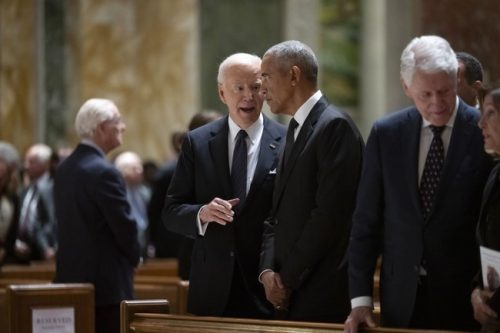The Satanic Temple sued Idaho over the state’s abortion laws and a federal judge has dismissed the challenge, rejecting the group’s constitutional claims and backing Idaho’s pro-life statutes.
The Satanic Temple (TST) has pushed an aggressive public campaign in recent years around abortion, even launching provocatively named clinics like “Samuel Alito’s Mom’s Satanic Abortion Clinic” and the “Right to Your Life Satanic Abortion Clinic” in Virginia. Those stunts are part of TST’s broader strategy to frame abortion as a religious right and to provoke legal fights in conservative states. The group is based in Massachusetts but has pursued litigation nationwide since the Supreme Court’s Dobbs decision in 2022.
TST argues that abortion is a religious sacrament and sought to use religious freedom claims as the basis for striking down Idaho’s near-total ban. The complaint included sweeping constitutional assertions, claiming: “The ban extracted economic value from pregnant women’s wombs, in violation of the Fifth Amendment; effectively made pregnant women slaves, in violation of the 13th Amendment; gave unconstitutional preferences to rape victims, in violation of the 14th Amendment; and violated Idaho’s religious freedom statutes.” Those claims asked a federal court to treat abortion access as a protected religious practice.
Yesterday, a judge dismissed those claims.
A religious organization that says it encourages benevolence and empathy challenged Idaho’s abortion ban after the U.S. Supreme Court overturned Roe v. Wade in 2022. On Monday, the case came to a close.
Victory: Satan lost in Idaho! The Satanic Temple just lost its lawsuit claiming abortion is a “religious right.” Sorry, child sacrifice isn’t protected under freedom of religion.https://t.co/oBMs0ZrsOS
— Kristan Hawkins (@KristanHawkins) November 13, 2025
The Satanic Temple, based in Salem, Massachusetts, sued Idaho Attorney General Raul Labrador, Ada County Prosecutor Jan Bennetts and the state, arguing that Idaho’s abortion ban, which is among the most stringent in the nation, violates the Constitution.
…
The Satanic Temple sued after the Supreme Court’s 2022 decision in Dobbs v. Jackson Women’s Health Organization, which gave states authority to ban or restrict abortion. Idaho’s ban outlaws nearly all abortions with narrow exceptions.
The organization uses the figure of Satan as a symbol of rebellion against authority and injustice, not as a deity to be worshipped, according to its website. It advocates for the separation of church and state and various civil rights, including bodily autonomy and reproductive rights.
The procedural history is straightforward and decisive. U.S. District Judge David C. Nye initially dismissed the case in 2024, the Ninth Circuit found TST lacked standing and sent the case back, and Judge Nye again ended the suit by dismissing it with prejudice. In his written opinion he explained why the legal theories could not survive scrutiny, writing, “No amendment could change the Court’s holding because the Court’s reasoning was based on the sheer unworkability of TST’s arguments as applied to the constitutional context. TST’s efforts to shoehorn its disagreements with Idaho’s abortion statutes into constitutional claims rang of the classic phrase ‘trying to fit a square peg in a round hole.’ It simply does not work.”
Judge Nye did not mince words in describing the filings as legally bankrupt, calling parts of the challenge “absurd” and “outlandish.” That language reflects a court that saw a mismatch between theatrical political messaging and viable constitutional law. Courts will not be tools for political theater, and this ruling reasserts limits on creative constitutional claims that lack concrete legal standing.
Idaho Attorney General Raul Labrador celebrated the result as a vindication of state law and local democratic choices, saying, “Idaho’s pro-life laws protect both mothers and unborn children, and this decision confirms those protections are constitutionally sound. The Satanic Temple’s attempt to manufacture constitutional violations out of disagreement with Idaho’s values has been rejected at every level. We’ve defended Idaho’s laws through every stage of this litigation, and we will continue protecting the right of Idaho’s elected representatives to defend life.” His statement marks the case as a clear win for officials who defended the statute.
It’s hard to reconcile TST’s public claims of promoting moral values with publicity stunts like naming a clinic after the mother of a pro-life Supreme Court Justice, and that disconnect undercut the group’s legal footing. The courtroom is meant for serious disputes grounded in law and fact, not for efforts to use provocative branding to force a constitutional reinterpretation. Conservatives who value the rule of law will see this ruling as a corrective to activist litigation that seeks to rewrite policy through publicity campaigns.
The practical effect is that Idaho’s near-total abortion ban remains enforceable, and this decision closes one avenue the radical activists attempted to use to overturn state law. For political conservatives and pro-life advocates, the outcome affirms the principle that elected legislatures set policy on life issues and that courts should not be swayed by theatrics dressed up as religion. The case now ends with a clear judicial rebuke to those tactics.






